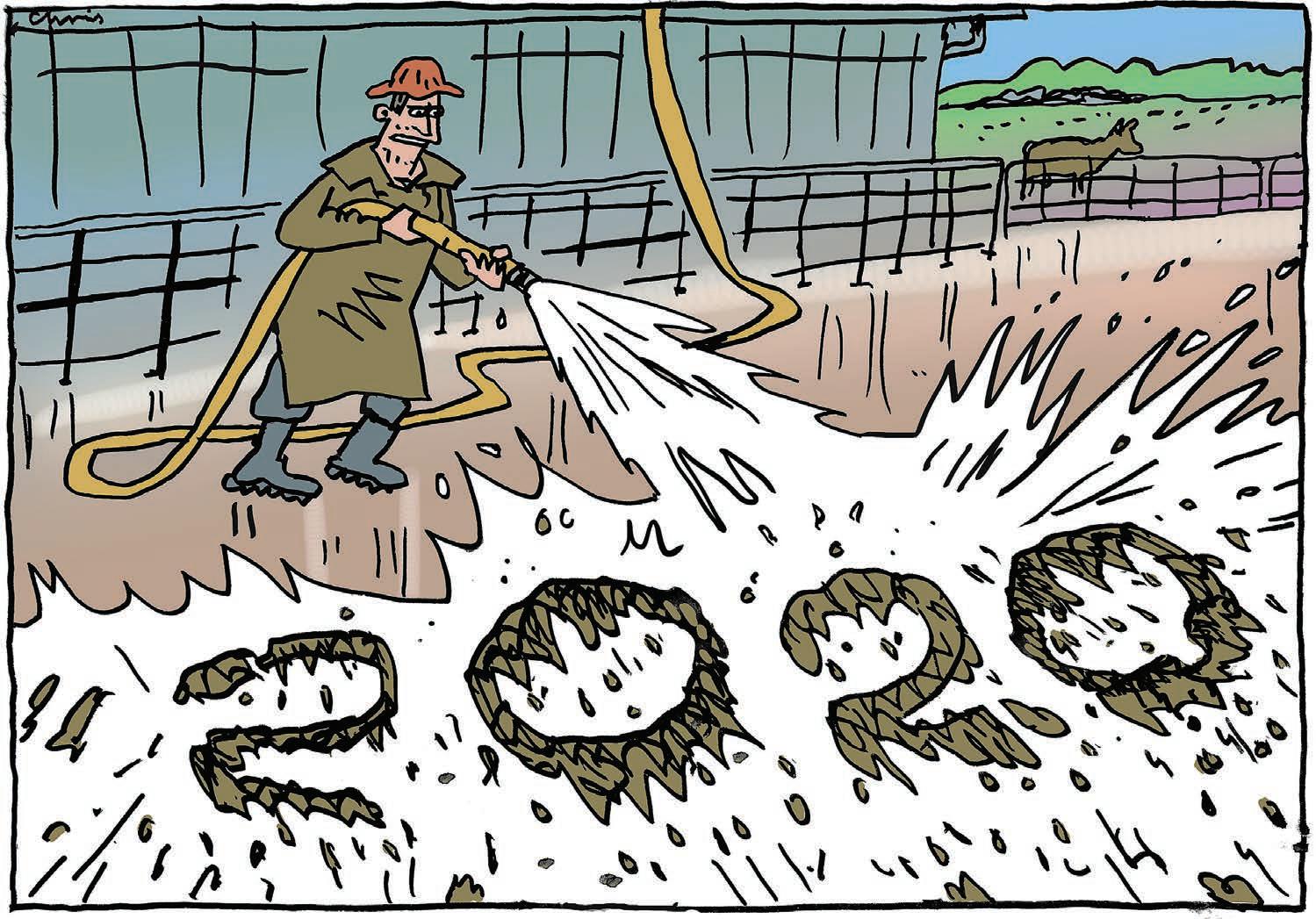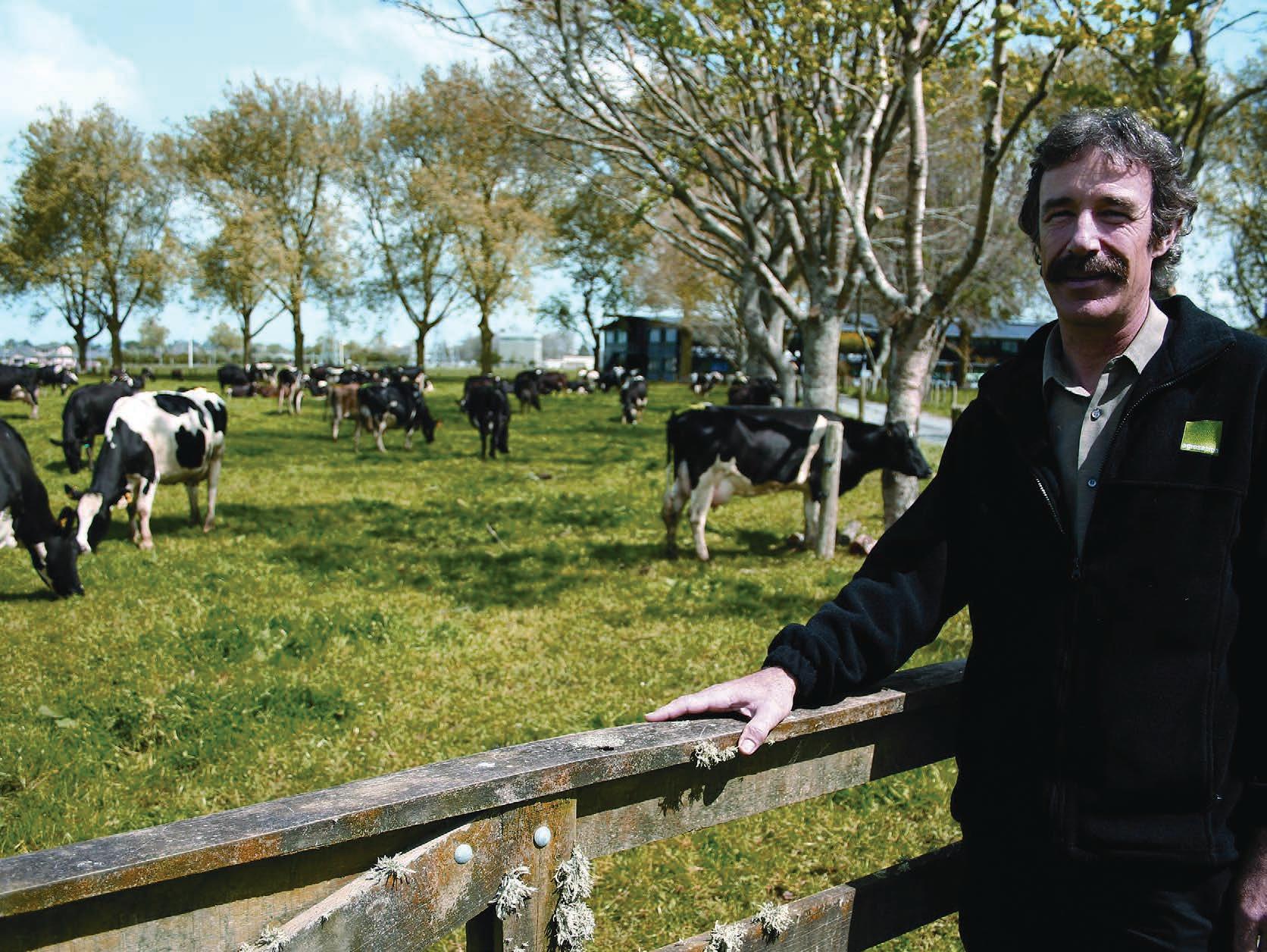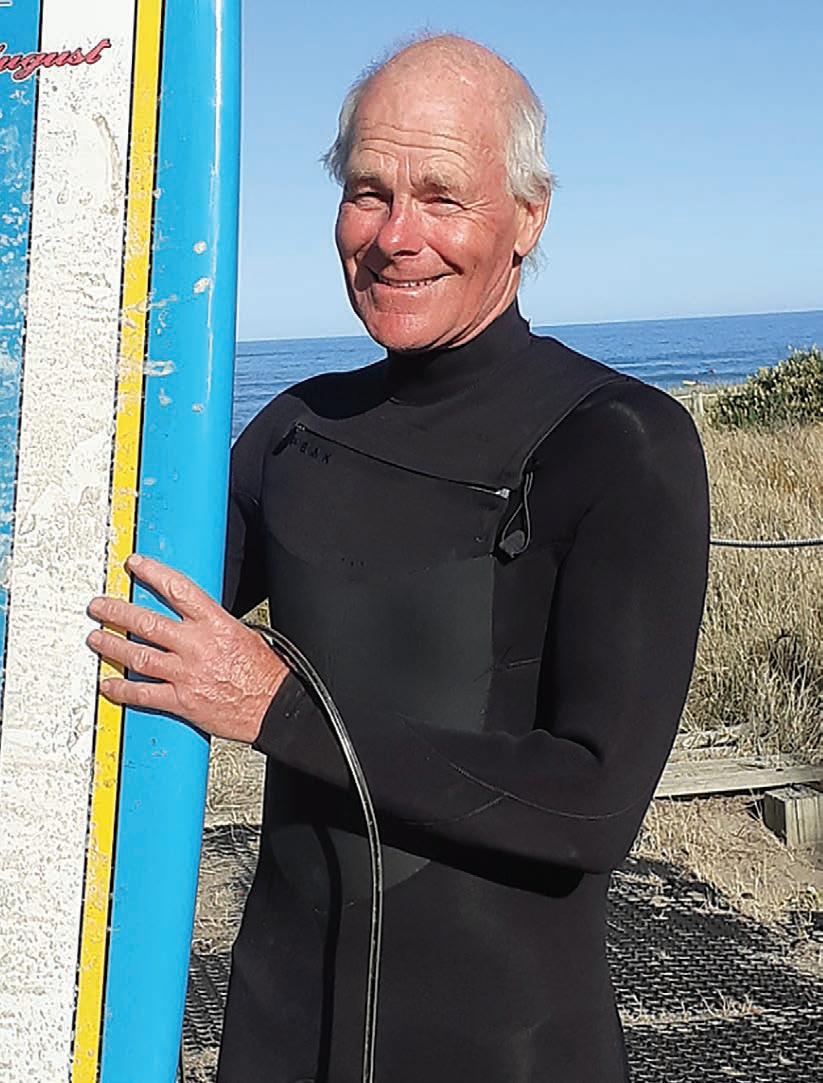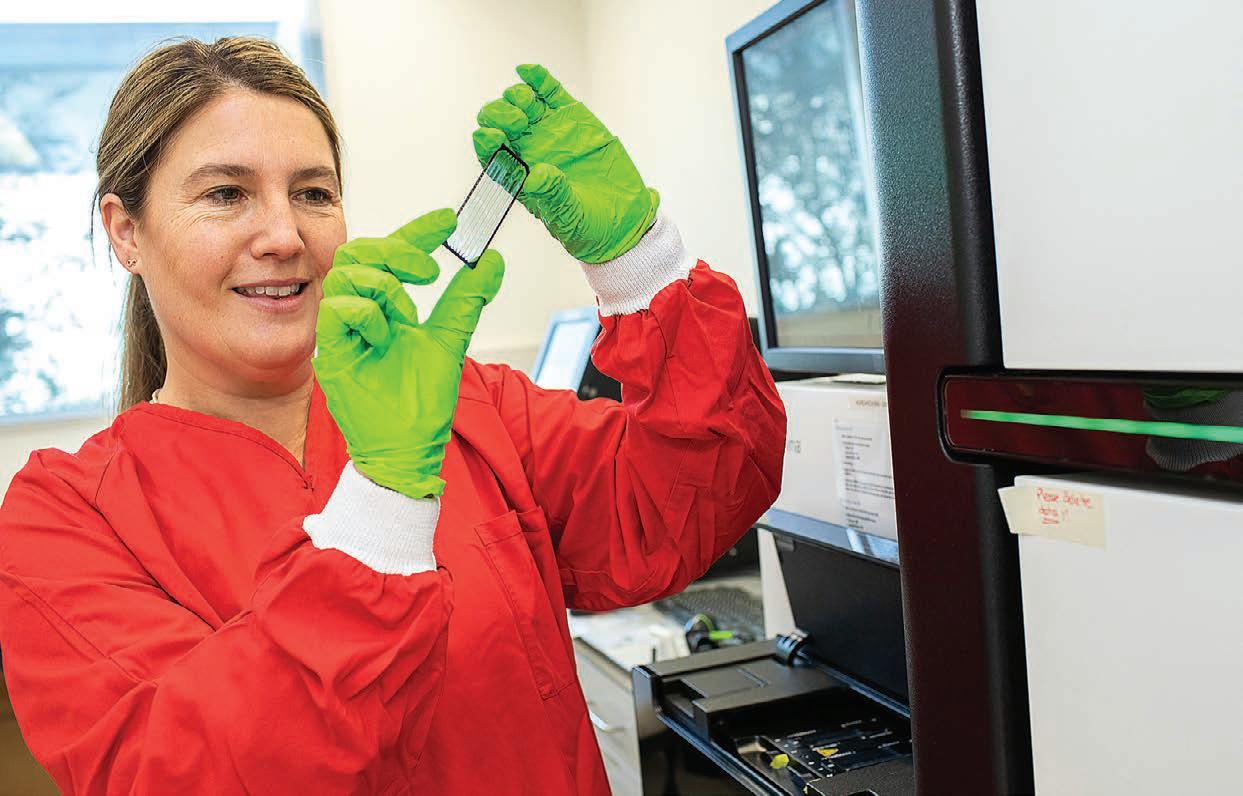
5 minute read
World
Farmers must embrace Brexit
FARM leaders have expressed huge relief that the UK and the EU agreed a last-gasp post-Brexit free-trade deal, but admit it comes with challenges and opportunities.
In her New Year’s Day message, National Farmers’ Union of England and Wales (NFU) president Minette Batters said the successful conclusion of a deal on December 24 was a “very positive step forward” that “should provide comfort to both farmers and the public.”
But Batters warned that there would be challenges to overcome, with traders now facing extra costs with checks and additional paperwork for food exports.
She said it is important that the Government does all it can to ensure UK food exports are “not left languishing in queues at the border when the changes take effect.”
Batters said 2020 had been a “year like no other” but the covid-19 pandemic had resulted in public support for British food and farming reaching a record high – and it was “so important that we get the next chapter right.”
Looking ahead to 2021 and beyond, Batters said it is crucial that the Government works with farmers to ensure its new Environment Land Management scheme is fit for purpose and that it allows farmers to “continue to produce food, while protecting SAFEGUARDS put in place to maintain food standards are inadequate, and there is already evidence that the UK government has weakened protections around food imports, according to a new report published on November 27.
The Safeguarding Standards report from the Future British Standards Coalition (FBSC) also suggests UK ministers have given themselves significant powers to change the rules on food imports without parliamentary votes or proper scrutiny.
“Rules governing the use of and enhancing our environment.”
The UK is set to host the international COP26 climate summit in Glasgow in November and Batters said it is an opportunity for British farmers to “truly demonstrate that we are committed to being global leaders in climate-friendly food.”
In his New Year’s Day message, NFU Scotland president Andrew McCornick said agriculture urgently needs an ambitious, coherent policy delivering a sustainable, profitable industry that addresses climate change, biodiversity and an increasing demand for nutritious, highstandard and high-welfare food.
“We need to throw open our doors to the public and build trust in what we do and how we do it,” he said.
Victor Chestnutt Ulster Farmers’ Union
“There is huge potential from selling our story, both on-farm and in the food chain. We also need to encourage more diversity in our industry across the piste – it can and will add value, both financially and culturally.” hormones and food additives are now easier to change, while standards on the use of antibiotics in farming have already been deleted,” the report said.
“With the Government resisting strong public pressure to commit in law to maintaining import standards, fears have persisted that lower-standard food could in the future undermine UK farmers and find its way into schools, hospitals and care homes.”
The report points to a number of examples from countries the UK is currently negotiating with
IT’S A WRAP: The Brexit deal between the European Union and the United Kingdom was successfully concluded on Christmas Eve.
NFU Cymru president John Davies said the past tumultuous 12 months had highlighted how important a safe, reliable supply of high-quality, affordable food is to the public.
All efforts must be focused on ensuring Welsh farmers have the widest possible range of markets freely open to them on the best terms, he said. And governments must minimise “the impact of red tape on the movement of our produce to the EU.”
In his New Year’s Day message, of food production standards that fall way below those in the UK.
Australia, for example, uses 71 more pesticides with direct links to long-term health damage, including birth defects, cancer and hormonal disruption, than the UK, it claims.
“A 2018 outbreak of superresistant salmonella in the US was linked to the overuse of the antibiotic azithromycin in cattle,” it said.
The report is also critical of the recently formed Trade and Agriculture Commission (TAC), Farmers’ Union of Wales president Glyn Roberts said the ongoing covid-19 pandemic, our new trading relationships with the EU and other countries, and discussions on future domestic rural policies left an “uncertain road ahead.”
“Whatever happens, I am confident we can secure a bright future for Welsh agriculture and our family farms,” Roberts said.
In his message, Ulster Farmers’ Union president Victor Chestnutt which is to be given statutory powers, ensuring its reports on the effects of future trade deals on food standards are at least considered by MPs.
It is especially critical of the membership of the TAC, which it says is too focused on farming and not enough on public health, the environment, animal welfare and consumer protection. And it is concerned that MPs will have too little power.
“UK parliamentarians are not being offered a vote or veto on trade agreements, and their stressed the need for the Government to introduce policies that support the profitability and expansion of local food production.
“Now is the time for our farmers to promote their fantastic story like never before, from the value we put on animal welfare and environmental protection to the great lengths we go to to produce high-quality, nutritious food that we are proud of,” he said.
UK food standards ‘still at risk from imports’
UK Farmers Weekly
options to postpone deals are convoluted,” the report said.
“The input of parliamentarians into shaping policy and its objectives appears limited.”
Tenant Farmers Association chief executive George Dunn, who sits on the coalition, says given the unity of voices from farming, environmental, animal welfare and public health groups, “it is imperative the UK government doesn’t drop the ball in reaching trade agreements which undermine domestic food production standards”.
“Extending the tenure of the Trade and Agriculture Commission will mean nothing if it is toothless, side-lined and ignored,” he said.
UK Farmers Weekly
QUESTIONABLE: The report shows that a number of countries the UK is negotiating with have food production standards that fall well below those in the UK.









